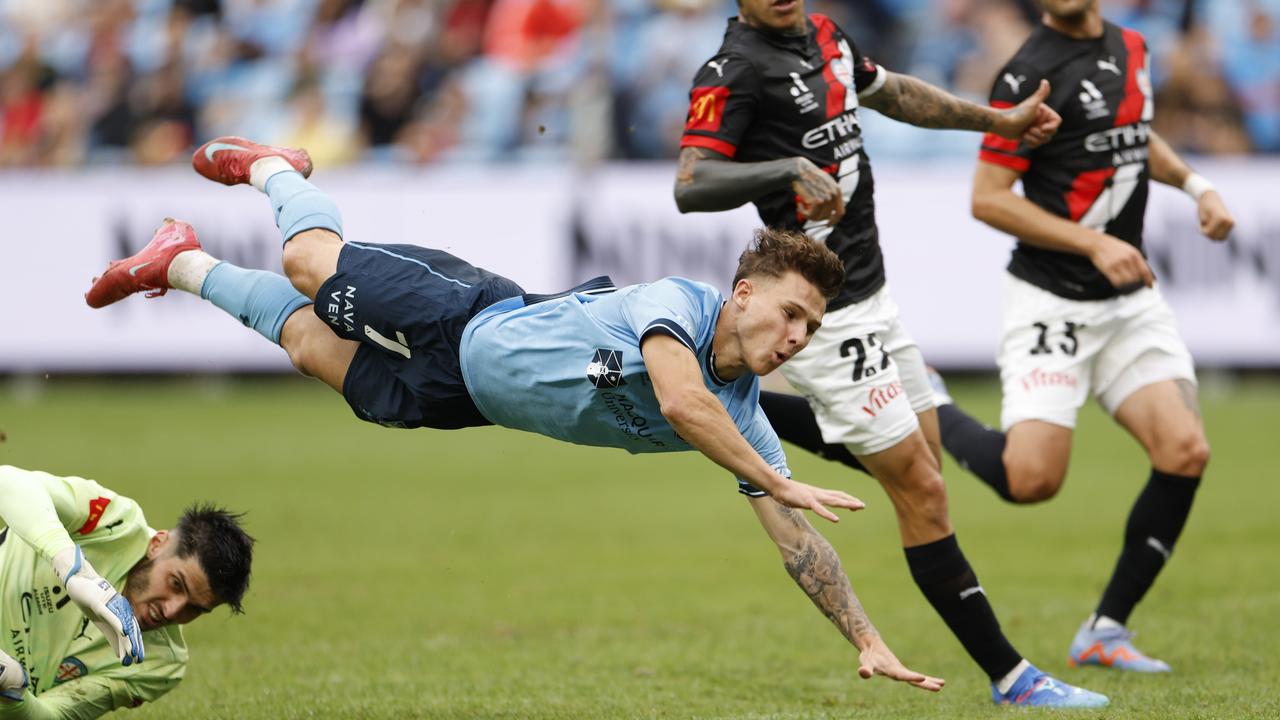Melbourne Victory, City and Western United’s on-field success a contrast to shaky off-field financial position
Melbourne Victory has a new white-knight in the shape of British poker legend Tony ‘The Lizard’ Bloom. But how do the teams of the A-League turn on-field wins into off-field success?
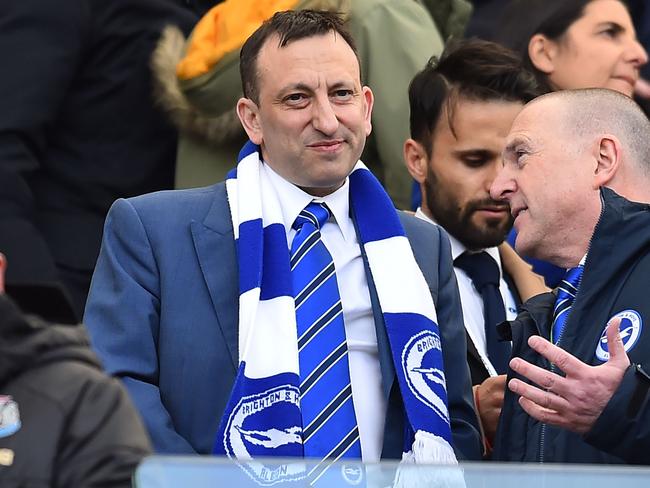
Football
Don't miss out on the headlines from Football. Followed categories will be added to My News.
During the heady days of the poker phenomenon before it largely migrated online, a bloke called “The Lizard” would fly around the world to play mega money tournaments for fun.
He looked like a British accountant: short, dark hair; plain clothes, often collarless T-shirts; no real ambition to disguise his emotion with sunglasses across a pointy nose, or a baseball hat. The most extraordinary thing about his presence at poker’s biggest final tables was how ordinary he appeared.
If he won, great. Lost? It didn’t really matter.
He was known for being so cold with his decision making they dubbed him “The Lizard”, and he seemed to like it if his subsequent business interests are anything to go by (he runs one of the most successful, and mysterious, sports betting syndicates in the world known as Starlizard).
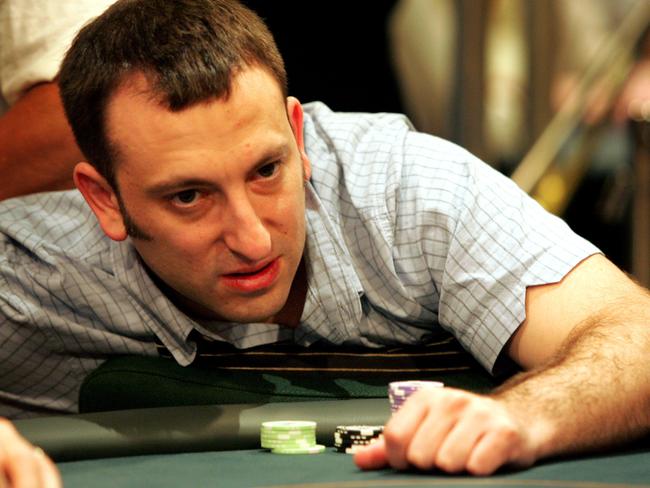
What’s also remarkable is Tony Bloom has now poured some of his amazing wealth, estimated to be worth billions, yet never admitted to by the man himself or verified elsewhere, into Melbourne Victory. Official news of his stake in the A-League powerhouse was announced a fortnight ago, just a few months after the club revealed $9.87m losses for the 2023-24 financial year.
Bloom is no stranger to Australia. His wife, Linda, is from Melbourne and they regularly spend time here. Anonymous to most, he ghosted in to watch Melbourne’s Victory-City A-League derby a few days before Christmas and left knowing the Victory would join Brighton, a Premier League force which he dragged from England’s third tier more than a decade ago using cutting edge analytics to evaluate players, to his portfolio of football investments.
Victory’s managing director Caroline Carnegie sent Bloom a small snapshot of the fan responses when they found out one of the most astute owners in world football was joining their club.
“I’m glad our fans liked the announcement,” he told her.
“That’s just very authentic,” Carnegie says. “He’s already bought in, part of the club and it’s very exciting for us, and for the league because it shows the direction of both.
“It’s not about his capital contribution as a shareholder, he’s seriously passionate about football and the growth of the game here as well. That is rare.”
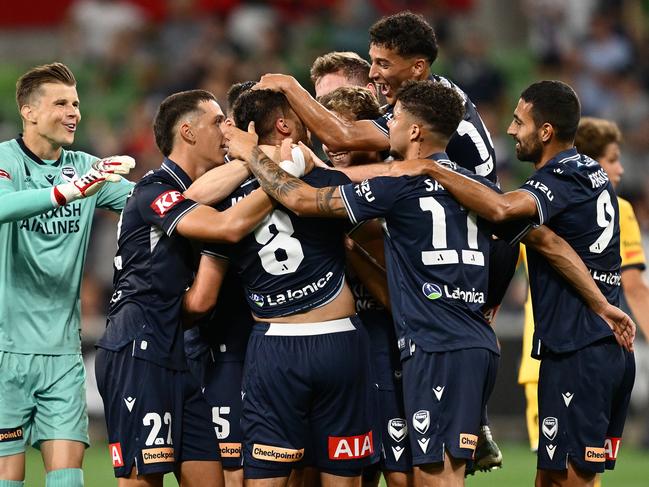
Bloom, who rarely speaks to the press outside the local Brighton media once or twice a year about the club he supported as a boy, has always been a gambler. He admitted to playing fruit machines (pokies) with his pocket money before the age of nine. He would sneak into betting shops with fake ID long before he was 18, praying on bookies with his gift for mathematics and understanding the real odds of sporting probabilities.
Now, he’s gambling on the A-League, alongside Bournemouth’s American investor Bill Foley, who was granted the licence for foundation franchise Auckland FC, with the club remarkably leading the men’s standings.
And Melbourne is turning into a battleground for A-League foreign investment, more than a decade after the City Football Group behemoth took over the Melbourne Heart, which later rebranded as Melbourne City.
“The problem the A-League has had in the past is you get football people who have a passion, but don’t know how much it costs to do it properly, then they get themselves into trouble,” Melbourne City chief executive Brad Rowse says.
“Manchester’s vision is this is going to be long, long term. That’s what their investment is in Australia. We had the chief operating officer over for a couple of days this week and he said, ‘This is the best facility outside of Manchester in the group’. That’s incredible when you consider there’s 13 clubs around the world (in the City Football Group).
“Sometimes, we think it’s slower than we like. But it’s all heading in the right direction. This is a long term play.”
Heading into the final month of the A-League Men’s season, Melbourne’s three franchises are jostling for another title and finals positions.

John Aloisi’s Western United are second, City fourth and Victory a point behind in fifth. City’s all-conquering A-League Women have broken the all-time unbeaten record, which now sits at 19 games, and will play in the semi-finals of the Asian Champions League.
But perhaps more poignant was the six Melbourne-based players Socceroos boss Tony Popovic included in his squad for the latest World Cup qualifiers against Indonesia and China, as Australia took a huge step to qualification for 2026. Victory’s Ryan Teague was one of Australia’s best on his Socceroos debut against China, and teammate Nishan Velupillay scored twice in the space of two matches.
“What’s been more impressive than ever has been the young players coming through,” Socceroos legend Aloisi says. “Not just with us, but at City and Victory. That’s healthy.”
Perhaps no team has developed young talent better than City, who are responsible for 54 graduates debuting in the A-League Men for either the sky blues or another club.
But can that contribute to growth for the game at the elite level in Australia?
The A-League Men season has seen a 14 per cent increase in both attendances and free-to-air TV ratings compared to last year – and there’s a theory the Melbourne melting pot and intense rivalry of its finals-bound teams will only add to it.
Says Carnegie: “When people come to our games, they love it. They love the atmosphere, they love the excitement and they’re often surprised at the quality of football.
“They might have read Australia is a development league or not in the big leagues, but it’s not representative of where we are at the moment. We’re starting to get a shift in recognition, but we need a lot more, and we need help to do it.”
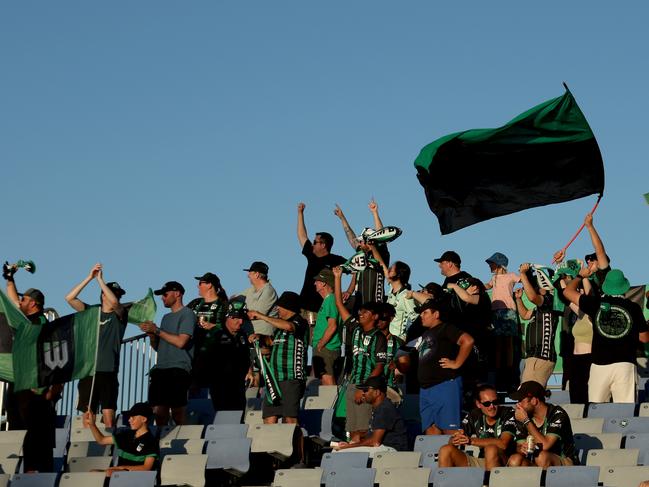
That help, they hope, will also come from the next generation, who will aspire to use the world class infrastructure being created by Melbourne’s A-League clubs.
Victory has announced bold plans to set up a state-of-the-art facility under an in-principle agreement with Mitchell Shire Council. City are already housed in a magnificent facility at Casey Fields, which caters for six academy teams as well as its elite men’s and women’s outfits.
Western United’s Wyndham Stadium precinct project, promised in 2021 before Covid hit, is meant to eventually deliver a purpose built 15,000-seater stadium for Aloisi’s side.
On Friday, the club downplayed concerns over the future of that development following reports creditors are attempting to wind up two companies that underpin United.
WMG Football Club, that runs the United soccer team, lost $12.4m in the year to June 2023 and owes $44.1 million to “related parties”.
“Western Melbourne Group is aware of the matter, which concerns a legacy debt carried over during the pandemic,” the statement read.
“We have been in negotiations with the ATO for several years, working collaboratively to reach an outcome.
“Western Melbourne Group remains committed to building a city underpinned by sport, health, education and wellness. There is no impact on the football club in the immediate or long-term future.”
The struggle for football clubs to turn on-field success into strong revenue highlights the ongoing challenges that are still very real for all A-League clubs in Australia.
Yet men who have made their fortune from gambling on investments, whether it be property or sports matches, like The Lizard, don’t often lose. They’re gambling on the A-League.
Perhaps Bloom’s most famous bet, we know of, is when he convinced a syndicate he was running during the 1998 World Cup to put their entire bank, including profits from the tournament, on the underdogs and hosts France to beat Brazil in the final. France won 3-0.
He generally knows a winner when he sees one.
Originally published as Melbourne Victory, City and Western United’s on-field success a contrast to shaky off-field financial position

